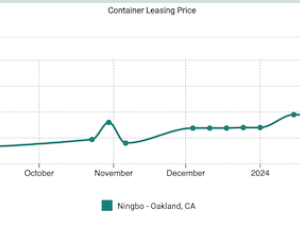Seaborne traffic through Egypt's Suez Canal continued to run smoothly, industry officials said, but many vessels were bypassing Egyptian ports and stopping at other countries instead to refuel, change crew and resupply.
The maritime industry was closely watching developments in Egypt, fearing that an escalation in violence could force the Suez Canal to shutdown and force vessels to travel an extra 6,000 miles around the Cape of Good Hope in South Africa.
"Yes, our operation is affected as Port Said and Alexandria are either partially open or entirely not operating due to a lack of labour and IT systems," Hanjin's President and CEO Young Min Kim told Reuters in an email.
"We are arranging to discharge some transshipment boxes at the next port for the time being," he added.
Kim did not say how many of its 200 vessels were affected and where they were being re-routed to.
More than 34,000 vessels passed through the Suez Canal in 2009, of which about half docked at Egyptian ports to pick up supplies, military escorts and new crew members, industry officials said.
DP World Limited and Danish shipping firm A.P. Moller-Maersk suspended their Egyptian port terminal operations due to the unrest.
Bypassing Egyptian Ports
Some container vessels that were initially ordered to discharge in Egypt were instead unloading and docking in Singapore, one of the world's busiest ports, said a senior shipping executive in Hong Kong.
Several other companies, however, said their shipping operations had not been affected by the political instability in Egypt.
"So far none of our ships have experienced any problems. In fact, one of them went through the Suez Canal a few days ago after the start of the unrest in Egypt without any issues," said Khalid Hashim, managing director of the Thai-listed firm Precious Shipping
Hong Kong-based dry bulk shipping firm Pacific Basin also said it was operating in the region as normal.
The container industry was expected to be the most affected should the Suez Canal close, analysts said.
More than 300 container vessels traveled through the canal in the first three weeks of this year, compared to 107 dry bulk carriers and 95 oil tankers, according to shipping and logistics firm GAC.
"We suggest that the real result of a canal closure to be reflected in retail and manufacturing price hikes caused by the ... detour container ships en route to Europe from the East would require," said George Los, analyst for Charles R. Weber Research in a weekly report.
Cargo travelling south through the canal totalled 295.4 million tonnes, while north-bound vessels carried 263 million tonnes in 2009, according to industry estimates. (Reuters)





